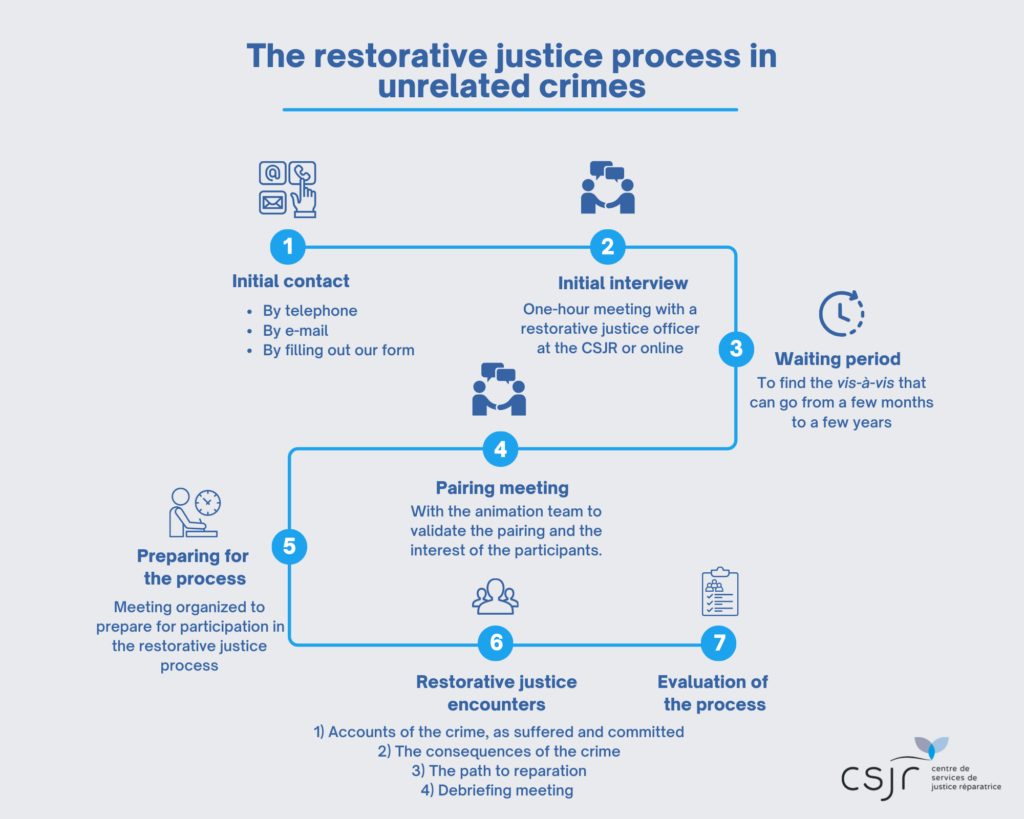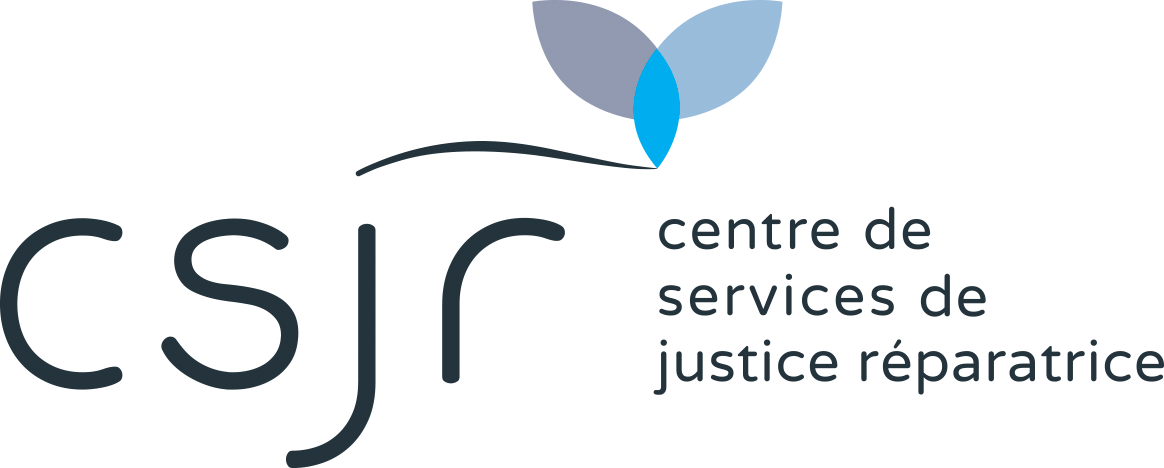CSJR restorative justice encounters involve people who have no prior connection but who have suffered or committed the same type of crime, known as related-crime encounters.
A fundamental principle of restorative justice is free and voluntary participation. This means that a person can interrupt the process at any time.
People who have been the victim of a crime do not have to go through a legal process to participate in the encounters. They may have been victims directly (various types of violence or abuse) or indirectly (e.g.: secondary victim of a murder, witness to an assault, relative of an incarcerated person, etc.). On the other hand, people who have committed a criminal act must have received a criminal sentence to take part in the meetings. They may be currently incarcerated in a federal penitentiary or have completed their social rehabilitation process in the community.
Here are the steps for anyone wishing to begin a restorative justice process.

You can contact us by e-mail at kameliachartrand@csjr.org, by telephone at 514-742-6631 (cell) / 514-933-3737 or by filling in our contact form.
Conducted by a member of the CSJR team, this meeting takes place at the CSJR or by videoconference, and lasts about an hour. During this meeting, the person is invited to talk about what he or she has experienced, the consequences the event has had on his or her life, the path he or she has taken since then, his or her motivations for undertaking a restorative justice process, his or her needs and fears, the support he or she has and the support he or she would like to receive. The purpose of this initial contact is to determine whether the restorative justice meeting process is appropriate for the person we meet.
A restorative justice worker searches to find a suitable counterpart. Since our restorative justice encounters take place in the context of related crimes (involving people who don’t know each other), we want to find a counterpart whose story is as close as possible to reality in terms of type of crime, context, degree of violence, etc. This process can therefore take time, depending on the stories of the people who contact us. This process can take several weeks, months or years.
When a counterpart is found, a potential pairing is formed. In concrete terms, this means that our restorative justice agent has found potential counterparts to carry out a restorative justice process together.
A series of meetings is conducted by the facilitation team designated for this process. One of these meetings is with the person(s) who was victimized, another with the person(s) who committed the crime, and a final one with the community member(s). The aim is to ensure that participants remain willing and committed to the process, especially if they have been waiting for a long time, and that the pairing seems appropriate. This meeting is also an opportunity to start preparing for the process, if necessary.
In person or telephone meetings can be arranged to prepare participants, depending on their individual needs. It should be noted that the preparation documentation given to participants may be sufficient.
The face-to-face restorative justice process takes place over four meetings, and the group process is over six or eight meetings. In all cases, the following four themes are addressed:
These encounters can be held at the CSJR or in a penitentiary, depending on the situation of the person(s) who committed the crime.
The facilitation team in charge of the process is made up of two people, usually a man and a woman. One or two members of the community are also present at the encounters. They symbolically represent the community that is also affected by the crime.
A debriefing meeting is then organized around 3 months later.
Participants are invited to complete an evaluation form to share their satisfaction with the process. These evaluations are very important, as we take them into account to ensure the continuous improvement of our services.
